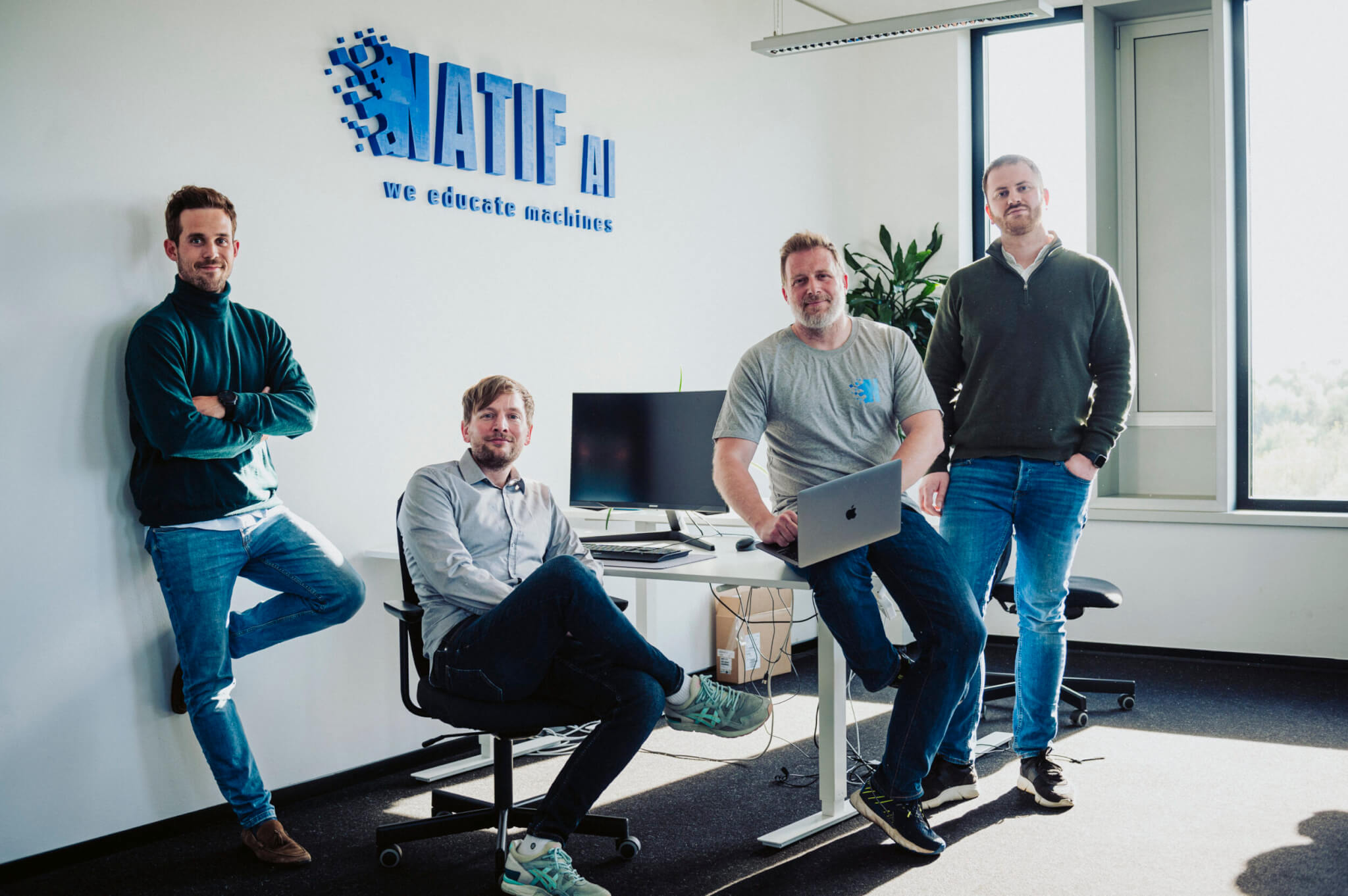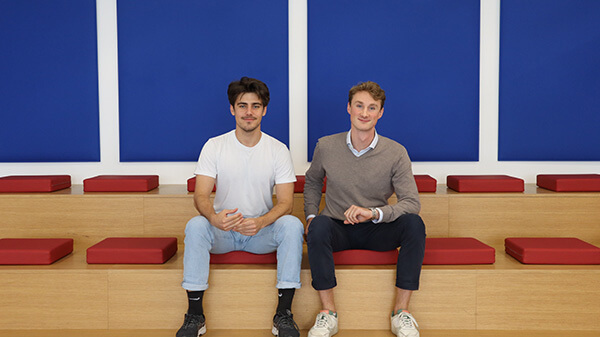Takeda Enters Collaboration and Licensing Agreement with Zedira and Dr. Falk Pharmato Develop First-in-Class Celiac Disease Therapy
October 20, 2022
- Collaboration Provides Takeda an Exclusive License to Develop and Commercialize ZED1227/TAK-227 in the United States and Other Countries Outside of Europe, Canada, Australia and China
- Agreement Adds Third Investigational Therapy to Takeda’s Pipeline for the Potential Treatment of Celiac Disease
Osaka, Japan, and Freiburg and Darmstadt, Germany, October 20, 2022 – Takeda, Zedira and Dr. Falk Pharma GmbH today announced a collaboration and licensing agreement to develop ZED1227/TAK-227, a Phase 2b investigational therapy for the treatment of celiac disease. TAK227 is a potential first-in-class therapy designed to prevent the immune response to gluten in celiac disease, a serious autoimmune disease where the ingestion of gluten leads to inflammation and damage to the small intestine. There are currently no approved therapies for the treatment of celiac disease.
“The continued development of TAK-227 in partnership with Zedira and Dr. Falk Pharma has the potential to offer a meaningful benefit to patients with celiac disease who suffer from symptoms and ongoing intestinal injury despite maintaining a gluten-free diet,” said Chinwe Ukomadu, M.D., Ph.D., head, Gastroenterology Therapeutic Area Unit at Takeda. “With three novel programs now in the clinic, Takeda is at the forefront of developing transformative therapies for celiac disease and is advancing multiple therapies for patients living with this challenging lifelong autoimmune condition.”
TAK-227 (ZED1227)(1) is a selective, oral small molecule designed to inhibit tissue transglutaminase (TG2), an enzyme that generates immunogenic gluten peptide fragments upon the breakdown of gluten in the stomach and intestinal tissue. TAK-227 targets the dysregulated transglutaminase to prevent mucosal damage in the small intestine by preventing the body’s immune response to gluten, a disease process mediated by the activation of gluten-specific T cells. A Phase 2a proof-of-concept study published in the New England Journal of Medicine previously demonstrated a protective effect of TAK227 on the duodenal mucosa and symptoms during a six-week gluten challenge.(2) The compound was also found to be safe and well-tolerated.
“Patients with celiac disease urgently need appropriate therapeutic options to manage the significant negative impacts of the disease on health and daily quality of life,” said Roland Greinwald, Ph.D., Managing Director Medicine & Pharmaceutics at Dr. Falk Pharma.
Martin Hils, Ph.D., CEO at Zedira, added “Takeda’s R&D expertise in gastroenterology, commercial footprint, and its strong commitment to develop therapies to treat celiac disease, make it an ideal partner to help us bring TAK-227 to patients.”
Under the terms of the agreement, Takeda and Dr. Falk Pharma will conduct global clinical studies for TAK-227 in celiac disease. Takeda will receive an exclusive license to develop and commercialize TAK-227 in the United States and other territories outside of Europe, Canada, Australia and China. Zedira and Dr. Falk Pharma will receive an upfront payment and are eligible to receive potential development, regulatory and commercial milestones, as well as royalties on net sales. Originally discovered by Zedira, Dr. Falk Pharma licensed the European rights to ZED1227 from Zedira in 2011 and assumed responsibility for preclinical and clinical development of the program.
Takeda is advancing a portfolio of investigational therapies for the potential treatment of celiac disease. In addition to TAK-227, Takeda is developing two other investigational celiac disease therapies that recently entered Phase 2 clinical trials. TAK-062 is a potential best-in-class, highly potent glutenase – a protein that degrades ingested gluten – that was computationally engineered to treat celiac disease. TAK-101 is a potential first-in-class, immune-modifying nanoparticle containing gliadin proteins designed to promote immune tolerance to gluten in celiac disease by preventing gliadin specific T-cell activation.
About Celiac Disease
Celiac disease is a systemic, immune-mediated disorder characterized by chronic enteropathic inflammation, and precipitated by exposure to dietary gluten in genetically predisposed individuals.(3) Global prevalence of celiac disease is ~1%, with highest rates in women, in relatives of individuals with celiac disease, and in those with other immune-mediated disorders; prevalence of celiac disease is increasing worldwide, yet many cases remain undetected or not formally diagnosed.(4,5,6) The amount of daily tolerable gluten varies widely among individuals with celiac disease. Although some can tolerate >50 mg/day, others develop mucosal abnormalities with gluten consumption of 10 mg/day, and mucosal damage has been associated with chronic exposures of as little as 1 mg/day.(7,8,9) Celiac disease can cause symptoms, including abdominal pain, diarrhea, nausea, and vomiting. Long-term complications of celiac disease may include malnutrition, accelerated osteoporosis, nervous system problems and problems related to reproduction. There is no approved therapy for celiac disease. The only available management option for patients is maintaining a gluten-free diet, which involves strict, lifelong avoidance of exposure to gluten proteins from wheat, barley, and rye, which is not always effective.(10)
About Takeda
Takeda is a global, values-based, R&D-driven biopharmaceutical leader headquartered in Japan, committed to discover and deliver life-transforming treatments, guided by our commitment to patients, our people and the planet. Takeda focuses its R&D efforts on four therapeutic areas: Oncology, Rare Genetics and Hematology, Neuroscience, and Gastroenterology (GI). We also make targeted R&D investments in Plasma-Derived Therapies and Vaccines. We are focusing on developing highly innovative medicines that contribute to making a difference in people’s lives by advancing the frontier of new treatment options and leveraging our enhanced collaborative R&D engine and capabilities to create a robust, modality-diverse pipeline. Our employees are committed to improving quality of life for patients and to working with our partners in health care in approximately 80 countries and regions. For more information, visit www.takeda.com.
About Zedira GmbH
The Darmstadt (Germany) based biotech company has a focus on celiac disease and other transglutaminase-linked conditions in the areas of autoimmunity, fibrotic diseases, and thrombosis. The company develops, produces, and markets specialty reagents and kits for research and development as well as for clinical diagnostics. Zedira established a pipeline of drug candidates adapted to specific indications based on a series of patented synthetic transglutaminase blockers. ZED1227 is the first direct-acting transglutaminase inhibitor in clinical development. Zedira is a portfolio company of the German High-Tech Gründerfonds. More information: www.zedira.com.
About Dr. Falk Pharma GmbH
Dr. Falk Pharma GmbH has been developing and marketing innovative medicines to treat a wide range of gastrointestinal disorders like inflammatory bowel disease or eosinophilic esophagitis as well as hepatobiliary disorders such as primary biliary cholangitis for over 60 years. As the international experts in digestive and metabolic medicine, the company brings together physicians, scientists, and patients to devise new and powerful approaches to patient care. Dr. Falk Pharma engages in pre-clinical and clinical stage research that aims to meaningfully improve therapeutic practice as well as patient health and well-being. A family-owned business with a global presence, Dr. Falk Pharma has ten affiliates in Europe and Australia and is continuously growing. The company has its headquarters and R&D facilities in Freiburg, Germany, its pharmaceutical products are manufactured in Europe, mainly at sites in Germany, France and Switzerland. Dr. Falk Pharma GmbH employs approximately 990 individuals globally, thereof 218 in Freiburg. Further information on Dr. Falk Pharma can be found online: www.drfalkpharma.com.
Zedira Media Contact:
Ralf Pasternack
contact@zedira.com
+49 6151-66628-0
1 Büchold C, Hils M, Gerlach U, Weber J, Pelzer C, Heil A, Aeschlimann D, Pasternack R. Features of ZED1227: The First-In-Class Tissue Transglutaminase Inhibitor Undergoing Clinical Evaluation for the Treatment of Celiac Disease. Cells. 2022; 11(10):1667.
https://doi.org/10.3390/cells11101667
2 Schuppan D, Mäki M, Lundin KEA, Isola J, Friesing-Sosnik T, Taavela J, Popp A, Koskenpato J, Langhorst J, Hovde Ø, Lähdeaho ML, Fusco S, Schumann M, Török HP, Kupcinskas J, Zopf Y, Lohse AW, Scheinin M, Kull K, Biedermann L, Byrnes V, Stallmach A, Jahnsen J, Zeitz J,
Mohrbacher R, Greinwald R; CEC-3 Trial Group. A Randomized Trial of a Transglutaminase 2 Inhibitor for Celiac Disease. N Engl J Med. 2021 Jul 1;385(1):35-45. doi: 10.1056/NEJMoa2032441. PMID: 34192430.
3 Ludvigsson J, Leffler D, Bai J, et al. The Oslo definitions for coeliac disease and related terms. Gut. 2013 Jan;62(1):43-52.
4 Caio G, Volta U, Sapone A, Leffler DA, De Giorgio R, Catassi C, Fasano A. Celiac disease: a comprehensive current review. BMC Med. 2019 Jul 23;17(1):142.
5 King J, Jeong J, Underwood F, et al. Incidence of Celiac Disease Is Increasing Over Time: A Systematic Review and Meta-analysis. Am J
Gastroenterol. 2020 Apr;115(4):507-525.
6 Al-Toma A, Volta U, Auricchio R, et al. European Society for the Study of Coeliac Disease (ESsCD) guideline for coeliac disease and other gluten-related disorders. United European Gastroenterol J. 2019 Jun;7(5):583-613.
7 Biagi F, Campanella J, Martucci S, Pezzimenti D, Ciclitira PJ, Ellis HJ, Corazza GR. A milligram of gluten a day keeps the mucosal recovery
away: a case report. Nutr Rev. 2004 Sep;62(9):360-3.
8 Itzlinger A, Branchi F, Elli L, Schumann M. Gluten-Free Diet in Celiac Disease-Forever and for All? Nutrients. 2018 Nov 18;10(11):1796.
9 Akobeng AK, Thomas AG. Systematic review: tolerable amount of gluten for people with coeliac disease. Aliment Pharmacol Ther. 2008 Jun 1;27(11):1044-52
10 Symptoms & Causes of Celiac Disease. National Institute of Diabetes and Digestive and Kidney Diseases. Available at:
https://www.niddk.nih.gov/health-information/digestive-diseases/celiac-disease/symptoms-causes. Last reviewed: October 2020. Last accessed: June 2022

Stay up to date
Subscribe now and receive the latest press releases on investments and other news from High-Tech Gründerfonds. We inform you about important developments at HTGF and provide you with interesting news from our portfolio. Whether it’s a successful exit, a new exciting investment or HR news – you’ll be the first to know!


